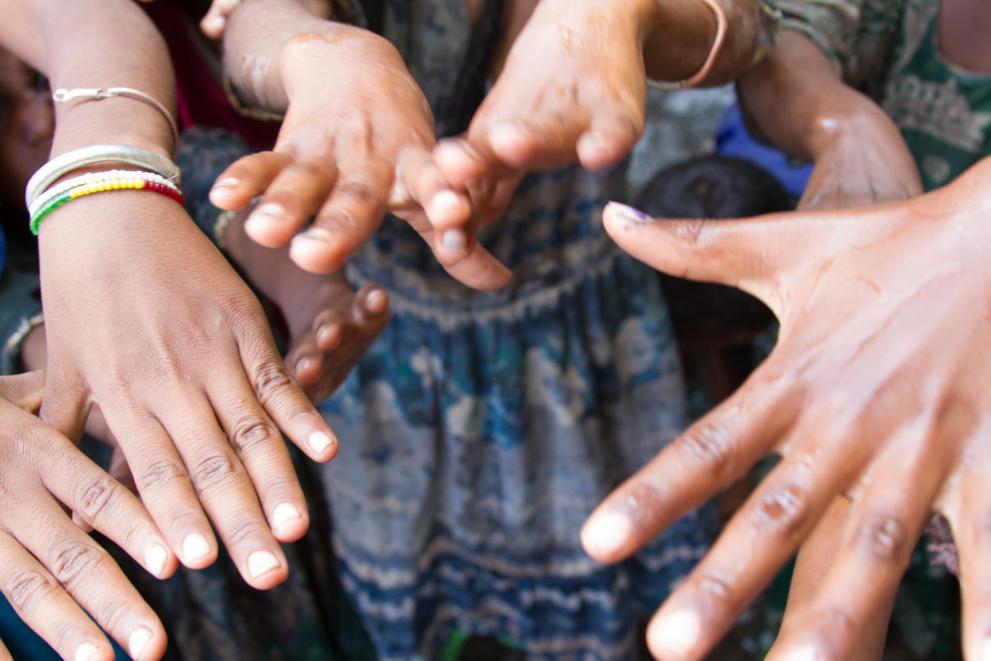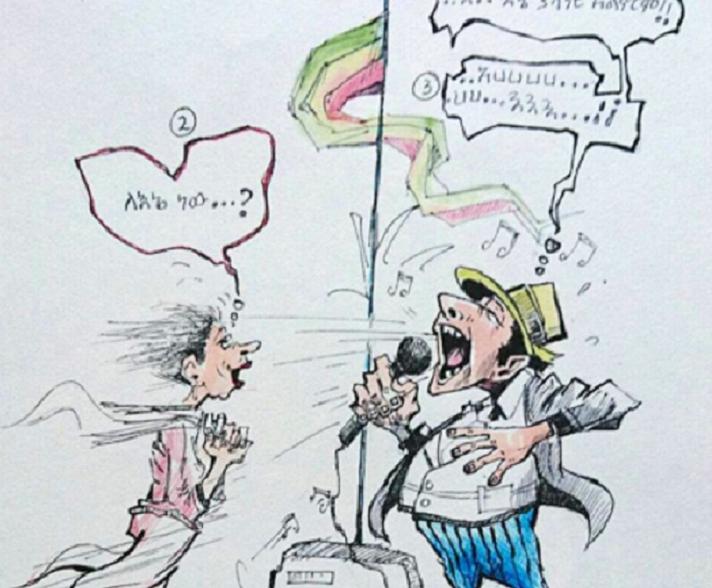
My name is Hanna (real name withheld). I grew up in a small village in Ethiopia. When I got to high school, many of my friends were going to Saudi Arabia to earn money. I thought it would be easy money. All my friends said I could make good money and my family and boyfriend pressured me to go to support my family. I was not trying to get any information about how to get there and how life and work could be there. I was only interested in how much money I could make, nothing else."
For Hanna (23), like many other migrants before her, this dream did not work out as she had imagined. One of her neighbours, an unlicensed broker, promised her a five-year contract as a domestic worker for a large sum of money and arranged her travel to Saudi Arabia. However, the reality when she arrived was much harsher than she has imagined. She did not receive the promised work permit and she was sent straight into a Saudi family home.
She had become a victim of trafficking. "I was kept in the house like a prisoner". Hanna endured horrible conditions. She recalls, "due to sexual abuse by the men in the house… I could not carry on and decided to run away and work informally, but I did not have the right papers. …. I was put in prison for two months before I was deported back to my homeland."
On her return to Ethiopia, Hanna was ashamed of how her life had turned out. She had not come home with the money she had hoped would help her family out of their poverty. Both of her parents were unemployed and the boyfriend she married on her return became very violent. He was angry that she hadn’t brought the promised money home from her stay in Saudi Arabia. When she became pregnant with a baby girl, she couldn’t stand the abuse any longer and ran away to her brother. He gave her shelter, but couldn’t afford to support her and her baby.
She was hopeless, without a safe place to go or an income to support her and her baby. Until she met former Timret Le Hiwot Ethiopia (TLHE) program graduates and went to one of their Drop-In centres to ask for help. The Civil Society Organisation provides assistance and protection to victims of trafficking and vulnerable migrants. They offer services that include psychosocial, nutritional, medical and legal support for women and children. TLHE sent a social worker, Mesfin Kifle, to visit Hannah at her brother’s home to assess her situation and she suggested that Hanna receive psychosocial support as well as business skills training through the TLHE’s Employment Facilitation Programme.
With the help of these courses Hanna gained her confidence back and is now employed at a restaurant through the contacts she made at the TLHE networking groups. She has started saving towards setting up her own business and is supporting herself and her two year old baby girl.
Mesfin reflects that, "Unfortunately, Hanna’s story is not unique. When we are desperate enough, we tend to ignore reality and believe in empty promises. There are migrants who have successfully settled in a new country and those stories tend to be told by the families at home to show off their success in their communities. However, those who have had a negative experience tend to hide their disappointments and don’t speak about their failures."
Background:
Better Migration Management (BMM) supports TLHE with drop-in centres and temporary accommodation for minors, women and other vulnerable migrants in major migration corridors, as well as with the implementation of a Victim Case Management System (VCMS). Furthermore, BMM partners with TLHE through a variety of training modules to support vulnerable migrants, particularly unaccompanied and separated migrant children. Since June 2018, over 200 women and men have been assisted by THLE with the support of BMM. Hanna is one these beneficiaries.
Apart from identifying and supporting vulnerable returning migrants, TLHE is also working within the communities to raise awareness about the risks of trafficking.
When Hanna told her story in one of those community sensitization sessions, a professional cartoonist drew this picture, highlighting her naivety in listening to all the positive stories from successful returnees and ignoring the hidden risks.
Over the past ten years they have successfully conducted cartoon projects, where returnees share their story with their community, while a cartoonist draws an image of their experience. "Through our community outreach programmes and the cartoon exhibition, we are trying to encourage people to share information with their families and communities about the risks and struggles a majority of migrant’s encounter." Mesfin adds.
Details
- Publication date
- 11 July 2019
- Region and Country
- Ethiopia
- Thematic
- Improved migration management
- Partner
- GIZ

